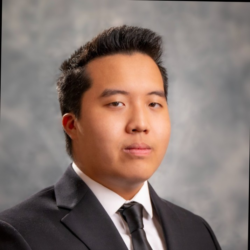California’s Excessive Occupational Licensing Requirements Hurt Workers and the Economy
Amid a mass shortage of teachers across California, Governor Newsom accomplished something long overdue. He made it easier for qualified teaching staff to be hired.
In January, Newsom signed an executive order to relax regulations that would have delayed the hiring of new substitute teachers. Executive Order N-3-22 also removes barriers to the reinstatement of retired teachers who would otherwise be age-limited. The order builds upon previous efforts to loosen teacher licensing criteria, such as cutting down the number of tests teachers must take to earn their credential and extending the deadline to take these tests.
“We’re working closely with local education officials to cut red tape to allow qualified substitute teachers to help maintain safe learning environments,” Newsom said in a statement.
School administrators were given more flexibility in determining the hours of substitute teachers, and retired teachers can now bring their years of experience back to the classroom in a time when it is needed most. Most importantly, prospective substitute teachers will be able to receive temporary certificates, regardless of their credential status.
But this isn’t enough to bring back the teacher workforce.
As Newsom himself implied, the normal hiring process for teachers is bogged down by bureaucratic red tape. To receive a teaching credential, candidates must go through the lengthy process of obtaining and maintaining a credential and fulfill a multitude of requirements, which range from passing a series of aptitude tests to completing a teacher training course. After receiving a preliminary credential, teachers must then complete an induction program within five years. On top of a full teaching load, new educators are bombarded with additional coursework, often leading to burnout already exacerbated by the pandemic. The test, course, and program fees quickly add up to tens of thousands of dollars, and the profession ends up being available only to those who can afford it.
California desperately needs to fill its teacher ranks – why make doing so hard and expensive? California should also adjust its requirements to attract candidates from the entire country. A study by researchers from Stanford University and Princeton University found that stringent licensing requirements hinder the mobility of teachers across states without increasing overall teacher quality.
Unfortunately, the excessive hurdles of California’s occupational licensing bureaucracy don’t just hurt teachers.
According to the Institute for Justice, California is the most regulated state in the nation when it comes to occupational licensing. Seventy-six out of 106 lower-income occupations are licensed in the Golden State. These professions run the gamut from dental assistants, who need ten hours of training, to milk samplers, who have to pass two exams on top of paying a licensing fee.
California’s licensing requirements are often arbitrary. For example, emergency medical technicians are only required to go through 160 hours of training, but hair salon shampooers must undergo six times as many training hours. Why? According to the California Board of Barbering and Cosmetology, “only a licensed barber, cosmetologist or apprentice can wash a consumer’s hair or prepare a consumer for services.”
States like Nevada and Louisiana issue a cheaper license specific to shampooers, requiring only forty to fifty hours of training. Do California workers really need 1,000 hours of training to learn how to keep the soap out of a customer’s eyes?
Unfortunately for California, industry elites have stood as a bulwark against any meaningful change. A 2018 California Senate bill that would have removed the practice of shampooing from the scope of barbering and cosmetology was stifled in the Assembly after fierce opposition from the Professional Beauty Association and other organizations.
Occupational licensing raises barriers to work, particularly for individuals at the bottom end of the economic ladder. Fees, exams, specialized training, apprenticeships, and other government-imposed obstacles discourage Californians from careers in fields with unnecessarily high bars for licensing. Workers faced with too many hoops to jump through often opt to shift into an unlicensed field before ultimately being dissuaded out of the skilled workforce.
Some proponents of occupational licensing argue that strict licensing requirements increase the quality and safety of services provided, but little evidence actually supports that. In fact, it may reduce quality by limiting competition, which also increases prices. A 2016 study conducted by President Obama’s Council of Economic Advisors explained that consumers are paying higher prices without receiving improved goods or services as a result of heavy-handed licensure.
High bars for occupational licensing also exacerbate income inequality. Costly, time consuming licensing requirements make better jobs less accessible for workers from lower-income families. A study by the Brookings Institution determined that licensing restrictions also harm the licensed worker. For example, scope of practice restrictions can limit the autonomy of licensed nurse practitioners, so they receive lower wages due to artificial limits on what they can and can’t do, which allows licensed physicians to receive higher wages for the services nurses could reasonably provide. Furthermore, many California licensing boards are dominated by industry members who seek to maintain employment barriers to control the entry of new workers in their field and reduce competition.
California continues to rank among the worst in the nation for personal and economic freedom. Governor Newsom, especially in the wake of the COVID-19 pandemic, must do more to help Californians get back in the workforce and to ensure small businesses survive the economic challenges of the last two years. Revamping the foremost barrier to job freedom, occupational licensing, would be a good start.
***
Edison Lee is a research assistant at the California Policy Center.
